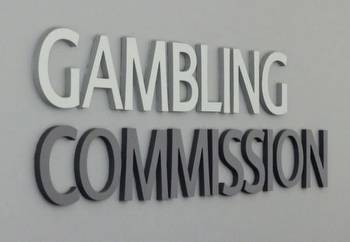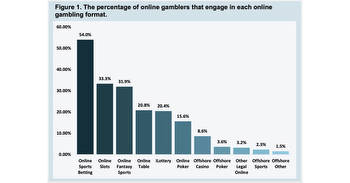Pennsylvania records 5% increase in online gambling for 2023

The update report was entitled “Pennsylvania Interactive Gaming Assessment: Online Gambling Report 2023”. It summarised three years of data from over 1,800 adults from across the state. It sought to better understand the impacts of online gambling on the state’s populace since it was legalised in 2017.
The survey was developed by Penn State’s Criminal Justice Research Centre alongside the Pennsylvania Department of Drug and Alcohol Programmes (DDAP).
The 16.0% participation figure for the 2022-23 financial year was a 5.0% increase on the 11% recorded the year prior. It was also 4.9% up on 2021’s report.
The report noted that online gambling revenues increased to over $2.1bn (£1.7bn/€2.0bn) during the 2022-23 fiscal year. This was a rise of almost 27% compared to the year before.
Glenn Sterner, assistant professor of criminal justice at Penn State Abington and lead author of the report, stated: “As we see increased revenue and advertising for online gambling, this report serves as a way for the Commonwealth of Pennsylvania to understand the potential impacts on individuals, families and communities.”
Dual-mode players most at risk of problem gambling
The report revealed that those who wagered both online and offline (dual-mode) gambled around once a week. Online-exclusive bettors wagered between two and three times a month, while offline-exclusive gamblers only bet around once a month.
Dual-mode gamblers spent an average of 14.88 hours gambling per month, compared to 5.3 and 1.47 hours for online-exclusive and offline-only players respectively.
Dual-mode players also led the way for gambling expenditure, averaging $708 a month on betting spend. Meanwhile, online-only bettors placed $617 a month in wagers, while offline-exclusive individuals averaged the least at $103 per month.
The report found that dual-mode players were most at risk of problematic gambling behaviour. 50.7% of bettors who wagered both online and offline showed at least one potential problem gambling indicator on the Brief Problem Gambling Screen, which highlights the presence of potential issues relating to gambling.
This was ahead of online-exclusive monthly gamblers’ figure of 40.7%. Meanwhile, only 16.4% of offline-only players presented at least one potential problem gambling indicator. These indicators include membership to a gambling loyalty programme and the primary motivation to gamble of relaxation or relieving stress.
Sterner outlined he remained committed to monitoring problem gambling and highlighting potential issues from increasing online gambling popularity.
Sports leads the way for online gambling
Sports was the most popular form of online betting for players in Pennsylvania. Some 7% of adults had engaged in it over the last year, while fantasy sports trailed behind at 3.4%.
In terms of offline betting, lottery led the way with 50.5% participation among Pennsylvania adults. Meanwhile, 40.9% of respondents had played instant lottery offline in the last year.
Dual-mode players favoured electronic gambling machines, with 3.7% of adults using both online and offline to bet with them, while 3.4% of adults wager both online and offline with instant lottery.
Illegal online gambling still persists in Pennsylvania
As one of just seven US states to have legalised igaming, Pennsylvania has one of the widest product offerings in the country.
Yet, the report identified that illegal gambling continues to be a factor. 3.2% of respondents had engaged in some form of illegal online gambling over the 12 months prior. An additional 2.1% had participated in a form of unregulated online gambling.
The study stated this could be down to ambiguity on which online gambling websites are legal and which aren’t. The report also pointed to American Gaming Association (AGA) research which outlined that 55% of those wagering with offshore operators had done so believing they were betting with legal operators.
Has there been cannibalisation in Pennsylvania?
The potential cannibalisation on land-based casinos from igaming has been previously cited as a reason against legalisation of online casino. The updated report on Pennsylvania shows that while online gambling increased by 5%, offline gambling participation also dropped by 5% to 62.5%.
This contradicts a report authored by the gaming consultancy Eilers and Krejcik Gaming (EKG) which suggested that the launch of online casinos has a beneficial impact on the revenue of land-based casinos.
The report looked at the compound quarterly growth rates (CQGR) of the gross gaming revenue (GGR) before and after online casino was brought in. It found that all of the six states reviewed underwent a positive change in quarterly growth following the introduction of igaming.
As part of the report, EKG also undertook a survey on both online and land-based casino operators. The EKG report declared that “the response from participants has been unanimous: cannibalisation has not been occurring”.
When questioned on the effect online casino had had on land-based revenue, 20% of participants declared it had “moderately increased”. The other 80%, meanwhile, stated it had “stayed roughly the same”.
































